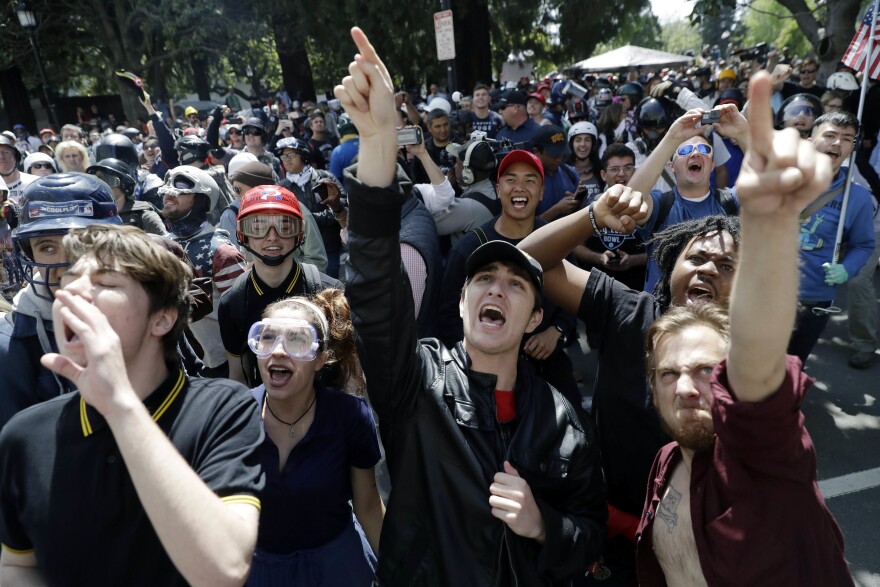Free speech zones. Deplatforming. Safe spaces. If you've heard these terms, you're likely familiar with the simmering debate on college campuses over freedom of speech in an age of polarized politics, social media mobilization, and renewed concerns about inclusion and diversity. In Kentucky, the controversy hasn't been confined to the classroom.
Wednesday, state lawmakers again took up legislation that could reshape free speech policies on college campuses.
Under House Bill 254, universities would have to affirm that they favor a free marketplace of ideas where speech is not suppressed because it's deemed "offensive, unwise, disagreeable, conservative, liberal, traditional, or radical." Faculty and students would be barred from "substantially" obstructing or interfering with the expression of views they reject. It would also expand areas commonly known as "free speech zones" on many campuses to any accessible, open, outdoor venue.
"At public colleges and universities across the country, students have been prohibited from exercising their free speech rights in open, outdoor areas of their campuses because they were not standing in their school's Orwellian free speech zones," said Sebastian Torres, a law student at the Salmon P. Chase School of Law at Northern Kentucky University.
Opening up campus beyond the zones, says Kentucky Young Democrat LGBT Caucus co-founder Michael Frazier, would help ensure one group doesn't dominate the conversation.
"Say the hate preacher comes and he's sent into the free speech zone. We go and counter-protest and we're told, "Oh no, no, you can't counter-protest because you don't fit in the free speech zone,'" he tells WUKY. "So what happens? It tailors it so that that's the only message being heard."
The University of Kentucky undergrad says the push to further enshrine free speech rules on campus is being driven by student groups on the right and left sides of the political spectrum.
Even so, some are hesitant to sign on — because they fear the bill muddies the waters, doesn't go far enough in protecting the rights of counter-protesters, and does little to improve on already-existing First Amendment guarantees.
"This bill will have a negligible effect, if any, except in the long run could very well lead to costly litigation and really a more uncertain environment on campus about what speech is protected," Fairness Campaign Director Chris Hartman said.
During a committe hearing, Senator Morgan McGarvey also pushed back on the bill's efficacy, arguing students citing it would still face lengthy court battles as they currently do when mounting First Amendment cases.
"The remedy is still the lawsuit," the Louisville Democrat said.
HB 254 shares much in common with Senate Bill 237, a campus free speech measure that failed to cross the finish line during the last regular legislative session. The current bill has yet to hit the Senate or House floor.
Read the full bill.
[Correction: A previous version of this story referred to Senate Bill 117, the Senate companion bill to House Bill 154. The bill debated in committee was the latter.]





